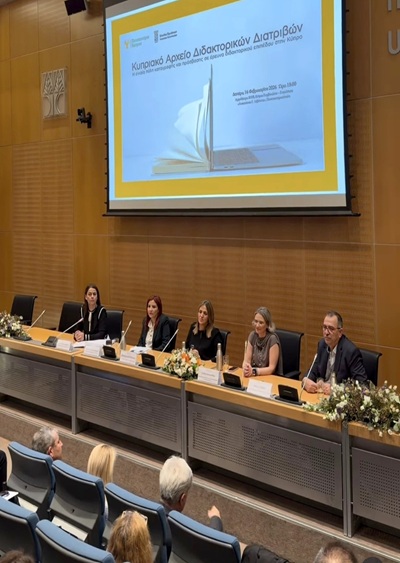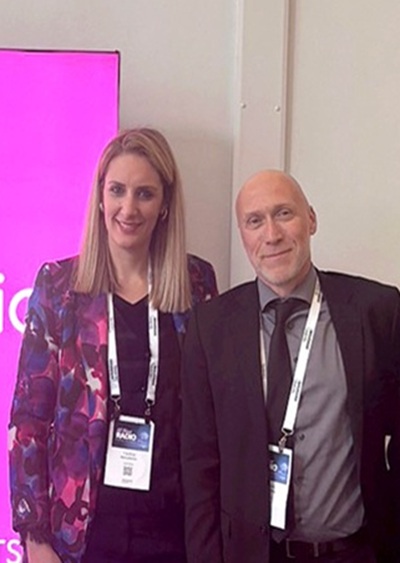
The term ‘convergence’ describes precisely this tendency towards bringing together into therapeutics a whole range of new technologies, that will eventually create an altogether new prevention and treatment regime in the health sector.
The world is going through a pandemic, a global public health crisis, and at the same time we are approaching what many call the ‘golden age of biotechnology: in any case, medicine and health and life sciences are in the focus of world attention. The possibilities revealed by the pandemic, combined with the rapid advancement of technology and the aggregation of vast volumes of biological and biomedical data, seem to be leading to major changes in how the health sector operates in general.
The volume of data that can now be collected through wearable devices (e.g. in the form of watches) that monitor heart rate, blood pressure, etc. and record health data, can make a significant contribution to the shift of the medical industry towards prevention, rather than treatment of diseases, i.e. before the patient develops any symptoms. This trend towards prevention is complemented by the very promising developments in gene-editing technologies (mostly CRISPR) and gene therapies, by means of which diseases can be treated and possibly eliminated at their genetic roots, rather than focusing on the treatment of symptoms. The extensive research being conducted in the field of precision medicine and increasingly personalized treatments also signifies a shift towards this goal of prevention.
Moreover, the technological advances in the fields of computer science, artificial intelligence and data analysis are utilized and in combination with everything mentioned above. From being able to produce better and more representative research results, due to the use of medical data by an extremely large number of participants, to utilizing machine learning algorithms that can offer valuable diagnostic assistance based on medical imaging, X-rays, MRIs and other data, large-scale transformations are foreseen in the way biomedical research works and progresses; the same being true for the processes of diagnosis and medical decision-making as well.
Finally, although certainly life expectancy has increased tremendously during the last century, the next challenge for medicine is to improve the quality of life in old age. In this field, there is intense research activity in regenerative medicine, tissue engineering and stem cells, with the aim of being able to replace and ‘repair’ damaged cells, tissues and organs.
The term that is widely being used in order to encompass all of the above is ‘convergence‘, and it describes precisely this tendency towards bringing together into therapeutics a whole range of new technologies, that will eventually create an altogether new prevention and treatment regime in the health sector. However, in order for medicine and health sciences to progress in these directions, education is key: both in Greece and in Cyprus, a large number of Postgraduate Programs operate with the aim of training scientists in these highly specialized fields.
The development of biomedicine and biotechnology in our country, as well as the aim of promoting the quality of life, is evident by the extent of specialization offered by Postgraduate Programs such as “Clinical Practice and Applications of Technology in Healthcare” at the Democritus University of Thrace, “Biotechnology-Quality Assessment in Nutrition and the Environment” at the University of Thessaly, “Biodiversity and Ecology” at the University of Cyprus, “Neuroscience” at the University of Crete and “Promoting Health in Old Age” at the University of West Attica. At the same time, programs such as “Translational Research in Biomedicine” at the Democritus University of Thrace, “Applications of Biomedical Technology in Infertility – Male and Female Factor” and “Advanced Systems & Methods in Biomedical Engineering” at the University of West Attica, “Biomedical Sciences” at the University of Patras, “Molecular Biology and Biomedicine” and “Biomedical Sciences” at the University of Cyprus, bring together laboratory research and clinical practice and offer specialized training in biomedical sciences and biomedical technology, with the aim of providing its graduates with high-level theoretical knowledge and practical know-how, as well as the capabilities to utilize the full range of modern cutting-edge technologies in medicine and other life sciences.
Another field, the importance of which has been made clear due to the pandemic, is that of public health: postgraduate programs such as “Public Health” at the University of Patras and “Infectious Diseases – International Medicine: From Bench to Bedside” at the Democritus University Thrace are interdisciplinary in nature and study ways of preventing and treating public health problems while keeping pace with the modern scientific and technological developments in the fields of infectious diseases, epidemiology and international medicine.
Regarding the huge volume of biomedical data now available and their processing, which requires training both in the health and life sciences themselves (such as molecular biology and genetics) but also data processing, analysis, bioinformatics and biostatistics skills, more postgraduate programs connecting these disciplines are gradually being created, such as the master’s program in Applied Bioinformatics and Data Analysis” at the Democritus University of Thrace.
Finally, the benefits from these developments in no way come without risks and issues that need to be addressed, from an ethical, legal and institutional point of view. The examination of exactly such issues is undertaken by master’s programs in Bioethics, both at the Democritus University of Thrace and the University of Crete: Bioethics, as a field that approaches critically the principles and criteria of medical practice in the age of biotechnology, is a normative investigation of ethical issues arising from biomedical innovations and their applications. The related Postgraduate Programs aim to educate and provide specialized knowledge on the various dimensions of problems concerning medical practice, biomedical research and the applications of biotechnology.
Books on related topics:














Leave A Comment